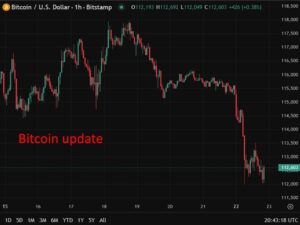Business site Bloomberg.com is reporting that Alex Gerko, founder of algo trading and market making firm XTX Markets, has lost a court case in the UK versus HM Revenue & Customs regarding the taxation of deferred payouts at his former high frequency and quant trading firm, GSA Capital.
According to Bloomberg, a UK appeals court has ruled that Gerko and other traders, while they were still running high-frequency trading strategies at GSA Capital from 2010 and 2015, should pay income tax on their share of the trading profits from the fund. The total size of the tax bill is estimated at £22.5 million (USD $29 million).
The appeal revolved around the structuring of a deferred payout plan at GSA Capital, whereby profits were allocated to an internal investment unit before they were ultimately distributed to the traders, coders and developers over a three year period. The dispute was weather the payouts should be treated as income eligible for corporation tax, or higher tiered income tax.
The payout plan was to ensure that the traders at GSA would ultimately be paid as much as a 50% share of the profits at the firm, over a three year period. The deferred payouts were designed to ensure traders were retained (better known in the business as “golden handcuffs”) as well as to punish bad behavior, according to a statement made by Mr. Gerko at a previous hearing.
The plan allowed GSA to claw back funds if regulatory fines were imposed, according to a lower tribunal ruling, which said a fine of $100,000 had once been returned from a trader’s bonus by GSA.
According to Mr. Gerko’s testimony to the tribunal, the plan wasn’t structured for tax purposes. He said he’d have preferred not to defer the payouts at all, saying that “he did not consider it very attractive to work 60-70 hour weeks, and have the entirety of the bonus effectively deferred.”
“I chose litigation rather than settling many years ago for a much smaller amount because I believe HMRC case was built on an interpretation of complex and ambiguous tax law that led to a highly unreasonable result,” Gerko was quoted by Bloomberg as saying. “I fundamentally disagree with the judgment which results in massive double taxation and has wider implications for the financial industry.”









